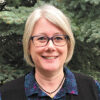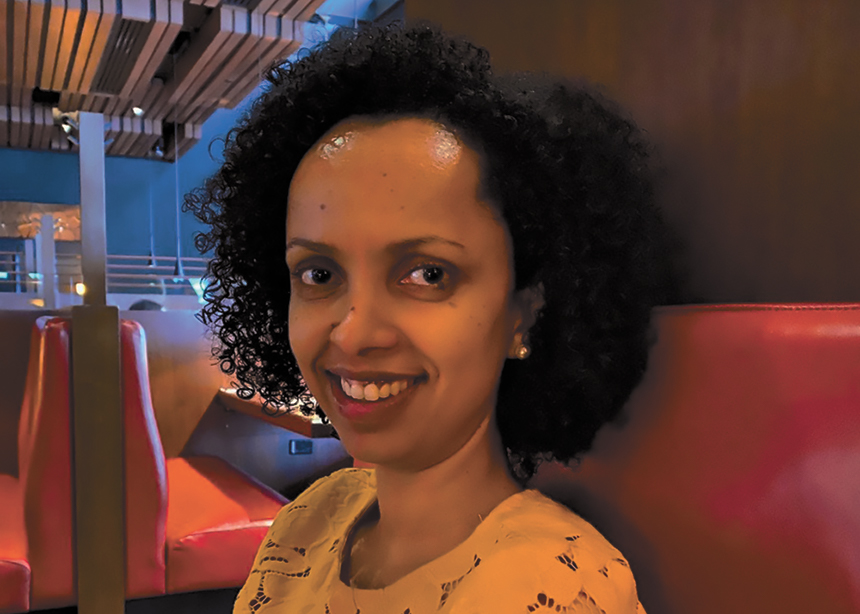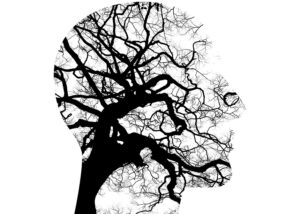According to Lule Begashaw, psychotherapist and team lead at the Edmonton Mennonite Centre for Newcomers, the mental-health team is seeing a big increase in requests for help since the COVID-19 outbreak. She says that “newcomers are a vulnerable population that has definitely been overlooked.”
Due to Alberta government funding cuts, the waiting list for counselling is getting longer by the day. “Clients struggling with mental illness should be cared for in a timely manner,” she says. “The unavailability of care should not be tolerated.”
Unique concerns of refugees and immigrants include depression and post-traumatic stress disorder (PTSD) related to their experiences with war, violence and torture. A study done by the Canadian Medical Association Journal discovered that immigrants and refugees experience 10 times the amount of PTSD than does the general population.
Begashaw also notes that many refugees from Syria were forced to remain behind locked doors in fear of being shot in the street. As Canadians are all being asked to remain at home in self-isolation, many newcomers feel their level of anxiety rising.
That being said, Amena Shehab, a Palestinian refugee who was born in Syria, says their homes were not safe during the war either. “It was not safe in the street or the home,” she says. “At any moment your home could be bombed or hit with a missile. . . . Although I know everyone has different triggers, for me, the COVID-19 brought back the fear of not knowing who is my friend and who is my enemy.”
In Syria, she didn’t know whom to trust and now she doesn’t know who is safe and who isn’t when doing something as simple as going to the grocery store.
These comments are similar to Begashaw’s, who says that, for survivors of war, when anxiety and panic increase, trust decreases. In addition to PTSD, many of her clients experience flashbacks and constant worry, and are unable to sleep. On top of this, they now have the added pressure of teaching their children at home, with limited English and technological skills.
Mental health often becomes a low priority for many newcomers, and this can cause a ripple effect. “If the parents are suffering, the children are suffering,” says Begashaw. “Family violence becomes a big concern.”
There are many barriers for newcomers when it comes to seeking help with their mental-health issues. The list includes: stigma, language, cost, childcare and transportation, so the Mennonite Centre offers free mental-health care in the clients’ own language along with childcare onsite.
A huge barrier in many cultures is the stigma attached to people seen as having a mental illness or seeking psychiatric care. “If you are identified as having mental illness, there is the fear of being deported or losing your job,” says Begashaw. Forty percent of the Mennonite Centre’s clients are children, and parents worry people will find out, or the school will put something on their record, if mental illness is suspected.
It is often hard for newcomers to trust, so therapists have to do a lot of reassuring regarding confidentiality and they try to re-frame treatment as “just working on a problem.” Sessions are held in the same building as English-as-a-second-language classes and daycare centres, so when newcomers arrive for an appointment no one knows why they are there.
Like in most organizations, due to COVID-19, appointments are now happening online. Before social distancing, the Mennonite Centre had many creative programs—including equine and art therapy groups—that didn’t depend solely on language. Now it has had to come up with alternate ideas.
One therapist will speak about an issue with a client online and then wait as they draw or paint what they are feeling. They then finish the session discussing the piece.
Play therapy was a common technique with children. Now online, they may be asked to find a container in the house and then place an item or toy in the container that represents what they are feeling. This gives the therapist “an eye into their inner worlds,” says Begashaw.
The experience of newcomers is complicated, with different struggles, stories and triggers.
For Shehab, the thing that scared her the most was when people started to hoard toilet paper. “I felt like the vibe of war was all around me,” she says. “Why were people hoarding toilet paper? Was there something I didn’t know? It made me feel really unsafe.”
Begashaw, an Ethiopian immigrant, offers some suggestions on how to support newcomers struggling with mental-health issues:
- Visit if you can.
- Support children by offering to tutor or donate supplies.
- Teach English.
Listen and connect with refugees or immigrants you know, as this will ease their burden.
Do you have a story idea about Mennonites in Alberta? Send it to Joanne De Jong at ab@canadianmennonite.org.
Related stories:
Anxiety
Choosing to be present
We are all created wonderful









Leave a Reply
You must be logged in to post a comment.